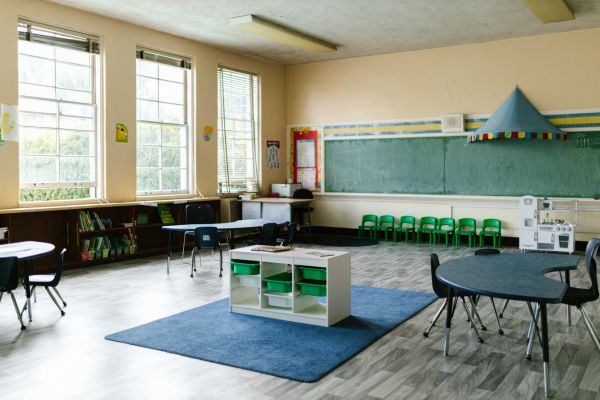In the modern world, the demand for skilled interior designers is on the rise, making it an exciting time to enter the field. Whether you’re looking to start a new career or enhance your current skills, an online interior design school offers the flexibility and comprehensive training needed to succeed. With the convenience of online learning, you can balance your studies with personal and professional commitments, access a wide range of resources, and gain the knowledge and skills necessary to thrive in the dynamic world of interior design. This extensive guide explores the numerous benefits of enrolling in an online interior design school, the comprehensive curriculum you can expect, and how it can help you achieve your professional goals. We will also discuss the career opportunities available to graduates and offer tips on how to make the most of your online education experience.
Benefits of Online Interior Design School
Flexibility
One of the most significant advantages of online interior design schools is the flexibility they offer. Traditional in-person programs require a fixed schedule that may not be feasible for everyone, especially those with work or family commitments. Online programs, on the other hand, allow you to learn at your own pace and on your own schedule. This flexibility means you can balance your studies with other responsibilities, making it possible to advance your education without disrupting your life. Whether you prefer to study in the early morning, late at night, or on weekends, online learning accommodates your needs.
Accessibility
Another major benefit of online interior design schools is accessibility. With online education, you can access courses and resources from anywhere in the world, eliminating geographical barriers. This means you can enroll in top-tier programs without needing to relocate or commute long distances. Additionally, online platforms provide a wealth of digital resources, including video lectures, interactive assignments, and virtual design tools, ensuring you have everything you need to succeed right at your fingertips.
Comprehensive Curriculum
Online interior design programs offer a comprehensive curriculum that covers all aspects of the field. From foundational principles to advanced techniques, these courses provide a thorough education that prepares you for a successful career. You will learn about design theory, space planning, color theory, lighting, and much more. The curriculum also includes practical skills such as using design software, project management, and client communication, ensuring you are well-rounded and ready to tackle real-world challenges.
Cost-Effective
Online education is often more affordable than traditional in-person programs. Tuition fees for online courses are typically lower, and you save money on commuting, housing, and other related expenses. Additionally, many online programs offer financial aid and flexible payment plans, making it easier to manage the cost of your education. The affordability of online interior design schools means you can invest in your future without accumulating significant debt.
Curriculum Overview
Design Principles
Understanding design principles is crucial for any aspiring interior designer. Online programs cover the fundamentals of design, including color theory, space planning, and lighting. You will learn how to create harmonious and aesthetically pleasing interiors that meet the needs and preferences of your clients. Courses often include hands-on projects that allow you to apply these principles in real-world scenarios, helping you develop a keen eye for design.
Software Proficiency
In today’s digital age, proficiency in design software is essential. Online interior design programs teach you how to use industry-standard tools like AutoCAD, SketchUp, and Photoshop. These tools enable you to create detailed floor plans, 3D models, and visual presentations that effectively communicate your design ideas to clients and contractors. By mastering these software applications, you will enhance your technical skills and increase your employability in the competitive job market.
Historical Context
A comprehensive understanding of the history of interior design is vital for any designer. Online courses delve into the evolution of design styles and trends, exploring different periods and their unique characteristics. By studying historical contexts, you will gain a deeper appreciation for various design influences and learn how to incorporate them into your work. This knowledge allows you to create timeless and culturally informed designs that resonate with clients and stand the test of time.
Project Management
Successful interior designers must be adept at managing projects from start to finish. Online programs include courses on project management, teaching you how to plan, execute, and oversee design projects effectively. You will learn how to create budgets, develop timelines, coordinate with contractors, and communicate with clients. These skills are essential for ensuring that projects are completed on time, within budget, and to the satisfaction of all stakeholders.
Portfolio Development
Building a strong portfolio is crucial for showcasing your skills and attracting potential clients or employers. Online interior design schools provide opportunities for you to work on a variety of projects, allowing you to develop a diverse and impressive portfolio. Courses often include portfolio development workshops where you receive feedback and guidance on how to present your work effectively. A well-curated portfolio highlights your strengths and demonstrates your versatility as a designer.
Career Opportunities
Graduates of online interior design schools can pursue various career paths, each offering unique challenges and rewards. Here are some of the exciting career opportunities available to you:
Residential Interior Designer
As a residential interior designer, you will specialize in designing private homes and living spaces. Your work will involve creating functional and beautiful interiors that reflect the tastes and lifestyles of your clients. You may work on projects ranging from single-room makeovers to complete home renovations. Residential interior designers often collaborate closely with clients to ensure their vision is realized, making strong communication and interpersonal skills essential for success in this role.
Commercial Interior Designer
Commercial interior designers focus on creating functional and aesthetic environments for businesses and public spaces. This includes designing offices, retail stores, restaurants, hotels, and healthcare facilities. Commercial projects often require a deep understanding of how space can influence productivity, customer experience, and overall well-being. As a commercial interior designer, you will work with business owners, architects, and contractors to create spaces that meet specific operational and branding needs.
Interior Stylist
Interior stylists specialize in staging homes for sale, photoshoots, or special events. Their work involves selecting and arranging furniture, accessories, and decor to create visually appealing spaces. Interior stylists need a keen eye for detail and a strong sense of aesthetics. They often work on short-term projects and must be able to adapt to different styles and client preferences quickly. This role is ideal for those who enjoy creative challenges and have a passion for visual storytelling.
Sustainable Designer
Sustainable designers emphasize eco-friendly and sustainable design practices. Their work focuses on creating interiors that minimize environmental impact and promote health and well-being. This includes using sustainable materials, energy-efficient lighting, and environmentally responsible design principles. As a sustainable designer, you will help clients create green spaces that are both beautiful and environmentally conscious. This growing field offers opportunities to make a positive impact on the planet through thoughtful and innovative design solutions.
Tips for Succeeding in Online Interior Design School
Stay Organized
Online learning requires a high level of self-discipline and organization. Keep track of your assignments, deadlines, and course materials using digital tools such as calendars and task management apps. Create a dedicated study space free from distractions, and establish a routine that allows you to stay focused and productive.
Engage Actively
Participate actively in online discussions, forums, and group projects. Engaging with your peers and instructors helps you gain different perspectives and enhances your learning experience. Don’t hesitate to ask questions and seek feedback on your work.
Network
Take advantage of networking opportunities provided by your online program. Join professional organizations, attend virtual events, and connect with industry professionals on social media platforms like LinkedIn. Building a strong network can open doors to job opportunities and collaborations.
Practice Continually
Regular practice is key to developing your design skills. Work on personal projects, take on freelance assignments, or volunteer for local community initiatives. The more you practice, the more confident and proficient you will become in your craft.
Conclusion
Enrolling in an online interior design school can be a transformative step toward a rewarding career. With flexible learning options, a comprehensive curriculum, and the opportunity to develop a professional portfolio, you can equip yourself with the skills and knowledge needed to thrive in the interior design industry. The flexibility, accessibility, and affordability of online education make it an excellent choice for aspiring designers looking to advance their careers without disrupting their lives. Embrace the convenience and benefits of online education and start your journey to becoming a successful interior designer today. By taking full advantage of the resources and opportunities available, you can build a fulfilling and impactful career in interior design, creating beautiful and functional spaces that enhance the lives of those who inhabit them.

